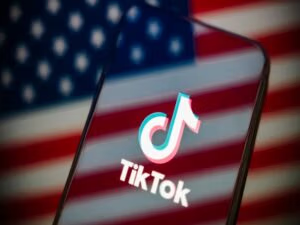Leading smart device maker OPPO has signed a global patent licensing agreement with Volkswagen Group, granting the German automaker access to OPPO’s cellular standard-essential patent (SEP) portfolio, including crucial 5G technologies. This landmark deal marks OPPO’s first bilateral patent licensing agreement with a connected-car manufacturer, signaling the expanding application of its mobile communication technologies into the automotive sector.
The agreement enables Volkswagen to leverage OPPO’s cellular SEPs to enhance user experiences across its global lineup of connected vehicles. This collaboration is set to bolster the technological foundation for advanced connected mobility, aligning with the UAE’s strategic vision for smart cities and future transportation.
“We are delighted to collaborate with Volkswagen through this patent licensing agreement,” said Vincent Lin, Head of Patent Licensing at OPPO. “This partnership is further recognition of OPPO’s leadership in cellular technology innovation and our commitment to creating a long-term, healthy and sustainable intellectual property ecosystem that empowers long-term innovation and industry growth.”
OPPO’s 5G SEPs are deployed in over 40 countries and regions globally, including the UAE and the broader Middle East. According to LexisNexis® IPlytics, a leading patent analytics platform, OPPO ranked eighth globally in overall 5G patent strength as of January 2025. As of March 2025, OPPO reported filing over 113,000 patent applications and holding more than 62,000 granted patents worldwide, with ongoing investments in core areas such as 5G/6G, artificial intelligence, charging, imaging, and video.
Robin Cefai, Chief IP Licensing Officer at Volkswagen, emphasized the deal’s collaborative nature. “The partnership with OPPO is an example of efficient, respectful, business-focused collaboration in the space of licensing of Standard Essential Patents,” Cefai stated, affirming Volkswagen’s willingness to recognize IP value and seek sustainable solutions.
The agreement arrives as the UAE actively positions itself as a global leader in future mobility, with connected and autonomous vehicles central to this transformation. The UAE became the first country in the Middle East and fourth globally to launch 5G in 2019. The Dubai Autonomous Transportation Strategy aims to transition 25% of all transportation in Dubai to autonomous modes by 2030, projecting annual economic savings of AED 22 billion ($6 billion).
5G connectivity is considered a critical enabler for autonomous vehicles, supported by the UAE’s robust infrastructure and proactive regulatory environment designed to attract global innovation. Dubai is already advancing in this area, with plans to introduce driverless taxi trials in 2026.





